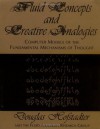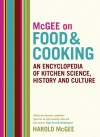251
Followers
4
Following
Manny Rayner's book reviews
I love reviewing books - have been doing it at Goodreads, but considering moving here.
Currently reading
The Greatest Show On Earth: The Evidence For Evolution
R in Action
Fluid Concepts and Creative Analogies
McGee on Food and Cooking: An Encyclopedia of Kitchen Science, History and Culture
Epistemic Dimensions of Personhood
Pattern Recognition and Machine Learning (Information Science and Statistics)
Relativity, Thermodynamics and Cosmology
The Cambridge Handbook of Second Language Acquisition
God and the Astronomers (New and Expanded Edition)
 This book is enthusiastically quoted in Collins's The Language of God, and when I saw a copy going yesterday for only 5 Swiss francs I couldn't resist the chance to learn more. It's an odd piece of work, and its author seems to have been an odd person. According to Wikipedia, he had an extremely distinguished career at NASA, among other things serving as the first chairman of the Lunar Exploration Committee and leading the Theoretical Division for several years. But he was also a co-founder of the George C. Marshall Institute, which is described in the following terms:
This book is enthusiastically quoted in Collins's The Language of God, and when I saw a copy going yesterday for only 5 Swiss francs I couldn't resist the chance to learn more. It's an odd piece of work, and its author seems to have been an odd person. According to Wikipedia, he had an extremely distinguished career at NASA, among other things serving as the first chairman of the Lunar Exploration Committee and leading the Theoretical Division for several years. But he was also a co-founder of the George C. Marshall Institute, which is described in the following terms:The preface says that God and the Astronomers is based on a Phi Beta Kappa lecture given in 1978, and it does indeed have a somewhat insubstantial feel; it's short, and a lot of it consists of pictures. You can read the whole thing in a couple of hours, including the two afterwords. The basic idea is nice, and it's a thought I've had myself several times. Somehow, the faith-based community has dropped the ball as far as the Big Bang is concerned. Mainstream science was notoriously reluctant to accept the theory, and many scientists went on record as calling it Creationism in disguise. In 1951, Pope Pius XII even gave a public address where he said that the Big Bang provided scientific validation of Genesis. So how has the Christian Church allowed things to get to the point where Krauss, in A Universe from Nothing, claims that the Big Bang proves God doesn't exist? You (or, at least, I) can't help wanting to help save those poor creationists from themselves.Jastrow together with Fred Seitz and William Nierenberg established the George C. Marshall Institute to counter the scientists who were arguing against Reagan's Starwars Initiative, arguing for equal time in the media. This institute later took the view that tobacco was having no effect, that Acid Rain was not caused by human emissions, that ozone was not depleted by CFCs, that pesticides were not environmentally harmful and it was also critical of the consensus view of anthropogenic global warming. Jastrow acknowledged the earth was experiencing a warming trend, but claimed that the cause was likely to be natural variation.
Well, Jastrow should maybe get some of the blame, because God and the Astronomers is a surprisingly poor piece of work. To start off with, it's one of the worst-produced books I've ever seen: the layout is horrible, the editing is very bad (the same anecdote about Slipher is presented twice in the first two chapters), and at one point two pages actually appear out of sequence. The author expresses his gratitude to "Sally Bassett for exceptional dedication and ability in carrying out many tasks of editing, indexing and proofreading"; one wonders if this is ironic. The content is better, but, although Jastrow writes quite well, he is appallingly sloppy and careless with his facts. He misrepresents Hubble's discovery of the expansion of the universe. He makes it sound as though Einstein initially refused to accept the expanding universe for religious/philosophical reasons (Einstein just hated singularities, and was equally skeptical about black holes), and he gives the impression that Einstein reluctantly endorsed it only near the end of his life (he was a convert by the early 30s). Most surprisingly, Jastrow makes obvious mistakes when describing how the chemical elements are formed in stars. If he'd looked through Hoyle's 1955 Frontiers of Astronomy - a best-selling popular science book in its time - he'd have seen that his account was quite wrong.
Perhaps the most interesting thing about the book is that, once again, it shows how hard it is to decide what can and can't be understood by science. The philosopher Comte famously said in 1835 that it would never be possible to know what the stars were made of; 30 years later, Huggins used spectroscopy to prove him wrong. Here, Jastrow says in 1978 that we will never be able to understand what happened in the Big Bang, because all the evidence was destroyed by the enormous temperature of the early universe. And again, just 30 years later, WMAP produces a detailed picture of the Cosmic Microwave Background Radiation, which gives a wealth of information about what happened.
Nonetheless, Jastrow seems to have sold reasonably well, while Kragh's meticulously researched Matter and Spirit in the Universe: Scientific and Religious Preludes to Modern Cosmology is virtually unknown. And it's not random. With all his faults, Jastrow is entertaining, while Kragh's book - it pains me to admit it - often left me feeling rather sleepy. There's a lesson here, though it's a depressing one.











